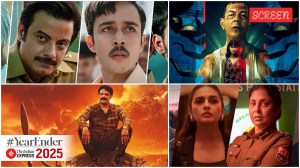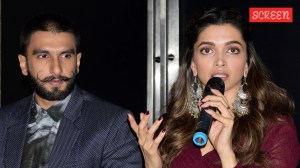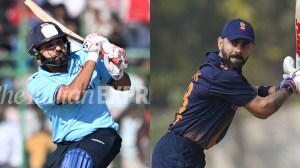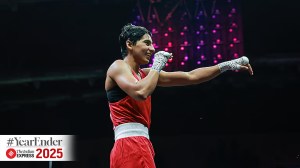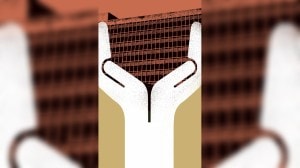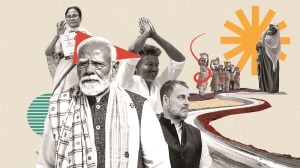Book marks
It was a strangely reassuring moment when three former prime ministers shared the dais in an auditorium in the Capital on Friday, and even s...

It was a strangely reassuring moment when three former prime ministers shared the dais in an auditorium in the Capital on Friday, and even sparred gently. For a while it was easy to brush aside the day8217;s flaming headlines 8212; Uma Bharati8217;s yatra, tiranga in hand and angry words on the lip, or the political furore over mysteriously bungled fertility figures, or Jyoti Basu8217;s sullen ultimatum to Manmohan Singh. It was tempting to just sit back and listen to them, Atal Bihari Vajpayee, I.K. Gujral and Chandra Shekhar, once first-among-equals, now men of wisdom and memories. I disagree with Chandra Shekhar on the politics of coalitions, said Vajpayee while releasing a collection of the latter former prime minister8217;s editorials in the weekly, Young Indian, because coalition politics is here to stay. The nation is straining to hear more.
But alas, Vajpayee mostly writes poetry. And V.P. Singh mainly paints. And P.V. Narasimha Rao has so far written only fiction. In our country, there is no tradition of former prime ministers writing memoirs of their time in office. It8217;s not like it is in so many nations of the West, where political memoirs are a weighty and thriving genre. Earlier this year, Spain8217;s former prime minister Jose Maria Aznar surely broke a record when he released the considered account of his time as head of one of the largest nations in Europe before the office door had clicked shut behind him. His autobiography rushed in barely a fortnight after his successor was sworn in. More unusually, perhaps, even his wife had her own book out at around the same time. My Eight Years in the Moncloa was promoted as the first memoir by a Spanish PM8217;s wife. It surprised no one, of course, when former US president Bill Clinton8217;s My Life quickly rose to the top of the bestseller lists.
There are so many good reasons why our politicians, prime ministers should write their memoirs. To make money, to set the record straight, simply to satisfy curiosities or a deeper thirst for knowledge. Really, how did Vajpayee accomplish his party8217;s dramatic turnaround from political 8216;8216;untouchable8217;8217; to benevolent big brother of a varied coalition? How did Gujral feel when they first pulled his name out of the proverbial hat? That brief interlude on the dais has touched off the imagination.
- 01
- 02
- 03
- 04
- 05










